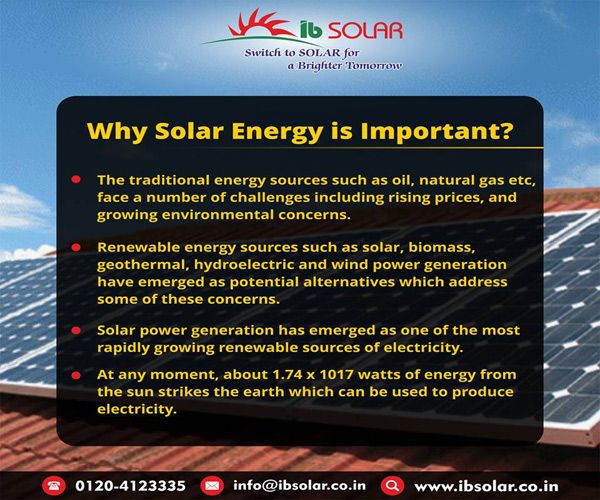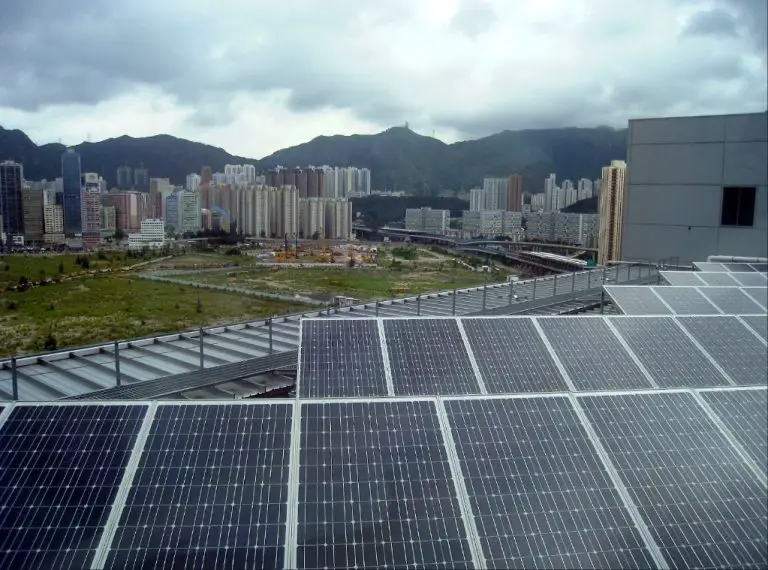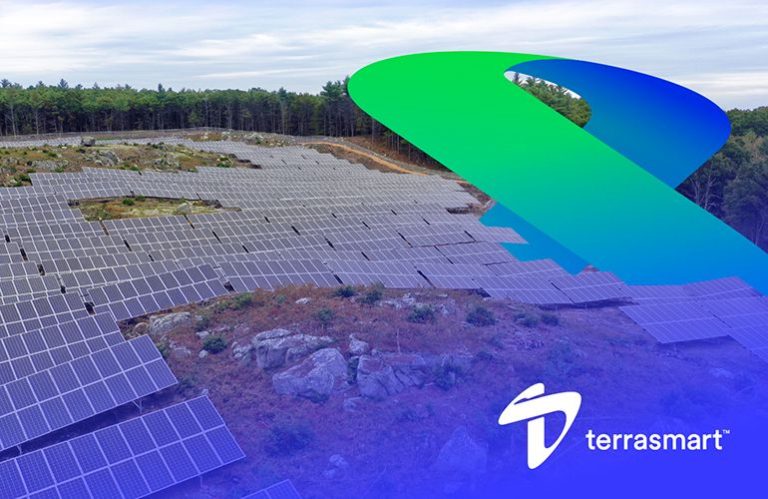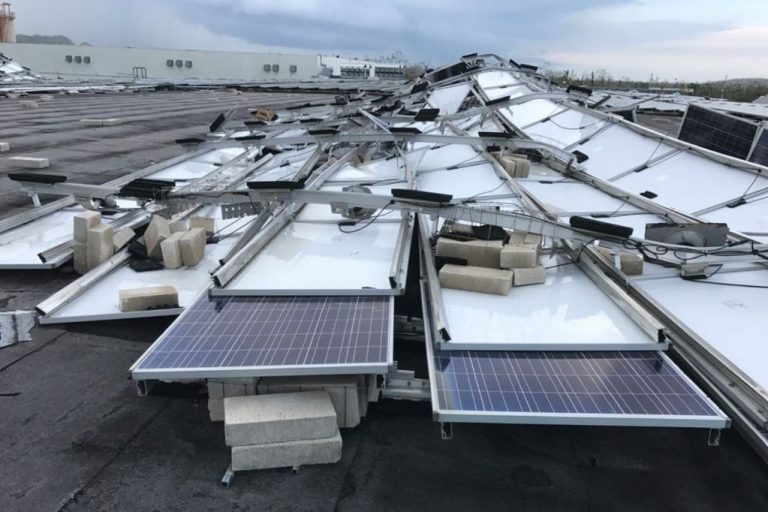Why Is Solar Important?

Solar energy is the radiant light and heat from the sun that is harnessed using a range of ever-evolving technologies such as solar heating, photovoltaics, solar thermal energy, solar architecture, molten salt power plants and artificial photosynthesis. It is an essential source of renewable energy and its technologies are broadly characterized as either passive solar or active solar depending on how they capture and distribute solar energy or convert it into solar power. Active solar techniques include the use of photovoltaic systems, concentrated solar power and solar water heating to harness the energy. Passive solar techniques include orienting a building to the Sun, selecting materials with favorable thermal mass or light-dispersing properties, and designing spaces that naturally circulate air.
The importance of solar energy stems from its abundance and renewability. The amount of solar energy that hits the earth’s surface every hour is greater than the amount of energy the entire human population uses in a year. Solar energy is readily available almost everywhere on the planet. Additionally, we cannot run out of solar energy as it originates from the nuclear fusion processes of the sun. For these reasons, solar energy has tremendous potential to provide clean, renewable energy to power our homes, businesses, and global society.
Renewable Resource
Solar energy is a renewable energy source because it comes from the sun (https://www.saveonenergy.com/solar-energy/is-solar-energy-renewable/). The sun provides a constant and essentially unlimited supply of energy to the earth (https://www.acciona.com/renewable-energy/solar-energy/). Unlike fossil fuels, which are finite resources, the sun will continue to provide energy for billions of years. This makes solar a truly renewable resource. As technology improves, solar power systems are becoming increasingly efficient at capturing the sun’s abundant energy.
Reduces Reliance on Fossil Fuels
Solar energy helps reduce reliance on fossil fuels like coal, oil and natural gas. As a renewable resource, solar can generate electricity without the air and water pollution caused by fossil fuels. According to Solar Reduces Fossil Fuel Use, solar energy reduces our dependency on harmful fossil fuels, and helps communities fight climate change caused by carbon emissions. Studies have found that solar and wind energy replace fossil fuel generation, also reducing CO2 emissions. Solar avoids the environmental damage of mining or drilling needed for fossil fuels.
Environmental Benefits
Solar energy has significantly less environmental impact than fossil fuels. The Environmental Benefits of Solar Energy notes that the generation of electricity from solar power instead of fossil fuels can dramatically reduce greenhouse gas emissions.
The combustion of fossil fuels like coal, oil and natural gas releases pollutants into the atmosphere, including carbon dioxide, nitrogen oxides, sulfur dioxide, volatile organic compounds and heavy metals. These emissions contribute to climate change, acid rain and health problems.
In contrast, solar energy systems produce no air or water pollution when operating. The manufacture and transportation of solar components does have some environmental impacts, but the Solar Energy and Environment report by the U.S. Energy Information Administration concludes these are much lower than the environmental effects of fossil fuels.
Waste generation is also minimized with solar energy. Solar panels can last 25-30 years and components are increasingly recyclable. This compares very favorably to the waste produced by extracting and transporting fossil fuels.
Economic Benefits
Solar energy provides significant economic benefits by creating jobs and reducing electricity costs over time. According to the Solar Energy Industries Association, over 250,000 Americans work in solar – more than double the number in 2012. As the cost of solar continues to decrease, the industry is estimated to employ over 400,000 people by 2028 (https://www.linkedin.com/pulse/impact-solar-energy-economy-job-creation-getsolarlabs).
In addition, solar energy reduces the cost of electricity for consumers and businesses. Solar panels generate electricity directly from sunlight, reducing the need for utility-provided power. Although solar has a high upfront cost, it pays for itself over time through electricity bill savings. Over an asset life of 25+ years, solar provides a return on investment through lower energy expenses (https://8msolar.com/the-economic-and-environmental-impacts-of-solar-energy-8msolar).
With no fuel costs, solar also provides a hedge against unpredictable electricity rate hikes. Once installed, the cost of generating solar electricity is fixed for decades, providing more stable energy prices (https://solarisrenewables.com/blog/5-economic-benefits-of-solar-energy). For these reasons, solar supports local economies through job creation and energy cost reductions.
Energy Independence
One of the major benefits of solar energy is that it provides greater energy independence and security (Solar.com). When homeowners install solar panels on their roofs, they generate their own electricity. This means they do not have to rely as much on utility companies and the centralized power grid. By becoming more energy independent, households and businesses can protect themselves against potential power outages or disruptions to their electricity supply. For nations as a whole, investing in renewable sources like solar allows them to produce more of their own energy rather than importing fossil fuels from other countries. This increases their energy security and reduces dependence on foreign oil and gas. As one article points out, energy independence allows nations to be free from the “geopolitical conflicts, supply disruptions, and price volatility” that come with relying on imported fuels (EcoWatch). Solar energy and other renewables provide a clean, sustainable path to greater energy self-sufficiency.
Wide Availability
One of the key benefits of solar energy is its wide availability. Solar energy can be harnessed in some form across most of the planet. According to the U.S. Energy Information Administration, the intensity of solar radiation reaching the Earth’s surface varies by location and time of day, but the resource is abundant across the globe.1 This makes solar power uniquely flexible and able to be implemented in many different regions and settings.
Solar photovoltaic (PV) panels can convert sunlight into electricity wherever the sun shines. Solar thermal technologies can use the sun’s heat for purposes like heating water. Concentrated solar power systems require direct sunlight but can store some solar energy for use when the sun isn’t shining. The wide availability makes solar energy easily accessible for residential, commercial, and utility-scale projects globally.
With smart grids and storage solutions, solar power can be distributed efficiently across connected areas. This means solar can benefit many areas, even those without ideal sunlight. The ability to distribute solar power from sunnier areas to less sunny spots allows more widespread adoption. Overall, the abundance and broad availability of solar energy make it one of the most versatile renewable power sources.
Technological Improvements
Solar technology is rapidly improving. Traditional crystalline silicon solar panels have dominated the industry and achieved maximum efficiencies around 25%, but new technologies are emerging that improve efficiency further.1 Perovskite solar cells made from inexpensive materials have achieved efficiencies up to 25.5% in lab tests and offer the potential for inexpensive, highly-efficient commercial solar panels.2 Thin-film solar panels made from materials like cadmium telluride (CdTe) are also improving quickly, achieving 22.1% efficiency in lab tests. Concentrator photovoltaics use lenses and curved mirrors to concentrate sunlight onto highly-efficient multi-junction solar cells, achieving efficiencies above 40%. As these new technologies mature and scale up, the cost per watt of solar power will continue to decrease.
Government Support
Government initiatives at the federal, state, and local levels provide significant incentives for solar adoption in the United States. The federal solar tax credit allows homeowners to deduct 26% of the cost of installing a solar energy system from their federal taxes through 2034 (1). This credit makes solar power much more affordable for homeowners. In addition, many state and local governments offer further solar incentives like rebates, tax exemptions, and renewable energy credits (2). For example, states like California, Massachusetts, and New Jersey have robust solar incentive programs. The wide availability of federal, state, and local government incentives has been a major driver in the rapid growth of solar energy in recent years.
Government support goes beyond financial incentives as well. Many states have enacted strong solar-friendly policies like renewable portfolio standards, net metering, and streamlined permitting processes for solar installations (3). The federal government has also invested heavily in solar research and development to drive technological improvements.
With continuing policy support at all levels of government, solar energy is positioned for even greater growth and mainstream adoption in the years ahead.
Sources:
(1) https://www.energy.gov/eere/solar/homeowners-guide-federal-tax-credit-solar-photovoltaics
(2) https://www.forbes.com/home-improvement/solar/solar-tax-credit-by-state/
(3) https://www.seia.org/research-resources/solar-state-by-state
Conclusion
In summary, solar energy is an incredibly important renewable resource that provides numerous benefits. Solar helps reduce our reliance on polluting fossil fuels, which is better for the environment and public health. It also brings economic advantages like energy bill savings, increased home values, and job growth. Solar further allows for greater energy independence and security. With solar technology rapidly improving and costs decreasing, along with supportive government policies, there has never been a better time to go solar. We must take advantage of this abundant, free resource and transition more of our energy production to solar for the future of our planet.
If you are considering installing solar panels, be sure to conduct thorough research and get quotes from multiple installers. The investment will pay off with years of free sunlight and peace of mind knowing you are part of the solution to energy sustainability and climate change.






